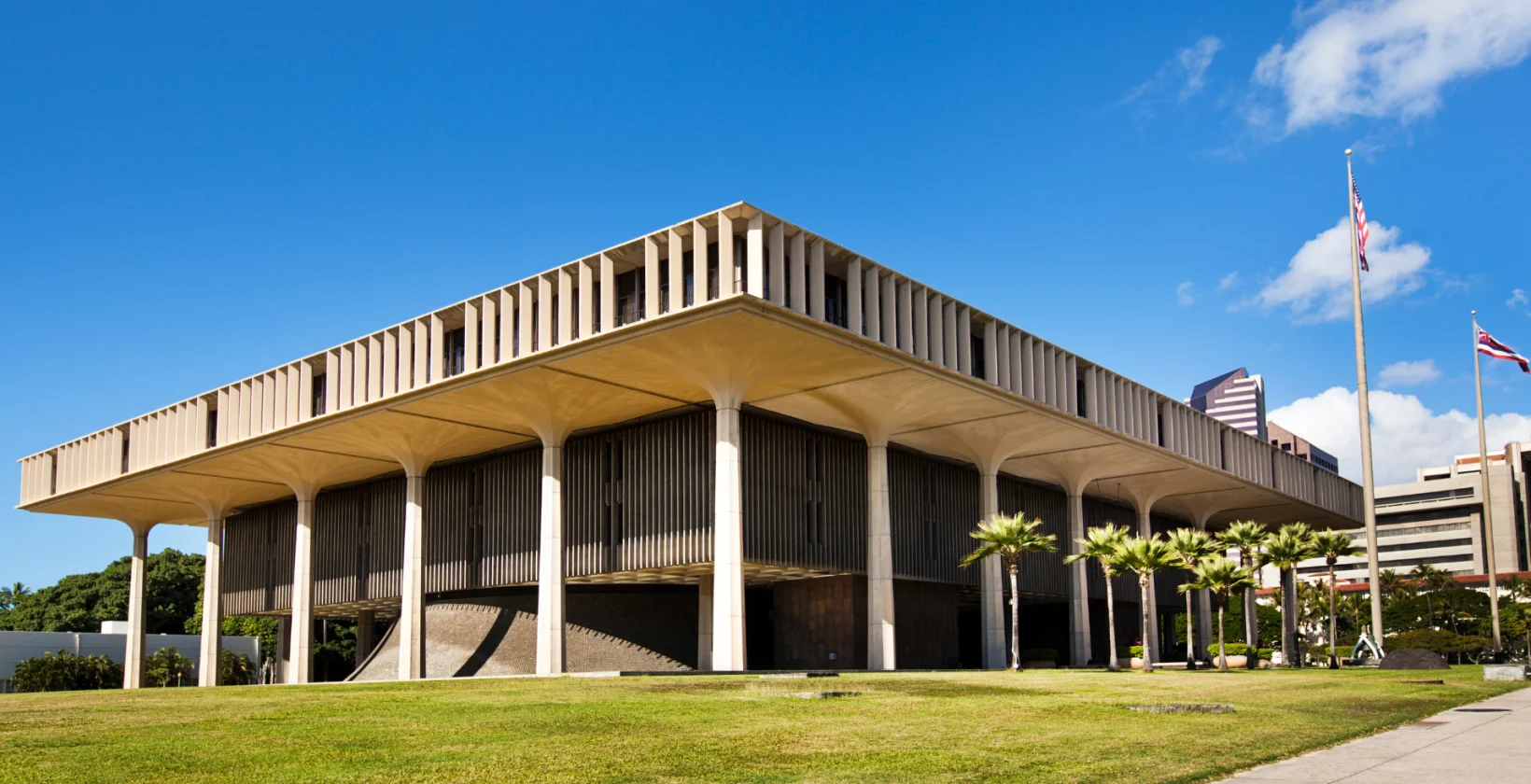During the 2023 legislative session, Blue Planet is prioritizing policy solutions that seek to advance the state’s decarbonization goals while also addressing affordability and equity. These seven priorities fall into three key areas of focus:
- Increasing affordability through energy and water efficiency
- Reducing carbon emissions from transportation
- Elevating equity and social vulnerabilities in resilience planning
Energy Efficiency Can Ensure a More Affordable, Healthier Clean Energy Future
Energy efficiency will play a foundational role in helping Hawai‘i achieve its carbon reduction goals—the cleanest and cheapest energy is the energy we don’t use.
Minimum efficiency standards [HB194, SB691]: Blue Planet hopes to expand the list of household products in Hawai‘i that have minimum energy and water efficiency standards. By setting efficiency standards for products not regulated by the federal government, Hawai‘i consumers and businesses can save an estimated $169.7 million in net utility bill savings over 15 years. Adding these products can also reduce air pollutants, GHG emissions, and save water. Cumulatively through 2040, these standards will save 551 gigawatt hours of electricity and 2.2 billion gallons of water, as well as avoid 281,500 metric tons of carbon dioxide, 795 tons of nitrogen oxide, and 1,230 tons of sulfur dioxide pollution. And, the best part, most of the products we’re seeking to add to the list have no incremental cost, i.e. they don’t cost more than inefficient models and consumers will start saving right away.
Clean lighting standards [HB192, SB690, SB913]: Blue Planet is advocating for a bill that phases out the sale of new fluorescent bulbs in the state. Fluorescent lights are a common sight in offices, garages, and basements—but they contain toxic mercury and use far more energy than newer alternatives, such as LED bulbs. By phasing out fluorescents in favor of efficient LED bulbs, states can avert a needless health risk, save families and businesses money on utility bills, and curb greenhouse gas emissions. In 2022, Vermont and California became the first states to phase out the sale of most fluorescent bulbs. States without a clean lighting policy risk becoming a dumping ground for inefficient, mercury-containing bulbs that suppliers cannot sell elsewhere.
Extending the Energy Efficiency Portfolio Standard (EEPS) beyond 2030 [HB193, SB683]: Since the EEPS goal was established in 2009 as part of the Hawai‘i Clean Energy Initiative, Hawai‘i has made impressive progress towards its clean energy goals, including the expansion of the renewable portfolio standard (RPS) to target 100% renewable electricity by 2045. But the EEPS goal remains a 4,300 gigawatt-hour reduction by 2030 (with no goal beyond that date). As electric utilities, Hawai‘i Energy, and other stakeholders plan for a 100% renewable future by 2045, it is similarly necessary to extend the EEPS goal beyond 2030 to align planning across the sector.
Reducing Emissions in Transportation is our Next Big Climate Action
While we have made progress on decarbonizing the electricity sector, ground transportation remains a significant source of greenhouse gas emissions in Hawai‘i, and is our top contributor to climate change.
EV-Ready buildings [HB346, HB1252]: Blue Planet would like to see an electric vehicle (EV)-ready requirement for new state facilities (to lead by example on workplace charging), and EV-ready incentives for new affordable housing. The most challenging aspect of EV charger installation is the common lack of electrical capacity to support charging infrastructure. In buildings without the proper wiring and conduit, tenants may pay up to 91% more for expensive retrofits to upgrade power capacity and wiring to their parking stalls.
State rebates for purchase of EVs [HB198]: With confusion regarding which EVs will qualify for federal tax credits under changes made in the Inflation Reduction Act, offering a state rebate for purchasing an EV can help ensure adoption doesn’t slow and that EVs become affordable for more Hawai‘i residents.
Electrify tourism transportation of rental cars and tour buses [SB973]: Blue Planet would like to require that an increasing percentage of Hawai‘i rental cars, tour buses, and other visitor industry transportation be zero-emission vehicles, with a goal of 100% zero-emission tourism vehicles by 2035. The rental car industry operates the state’s largest vehicle fleets, and the frequent turnover of the vehicles means greater availability of clean vehicles for local residents and businesses to purchase at discounted prices.
A Deepened Understanding of Equity & Social Vulnerability is Key to our Resilience
Expansion of Hawai‘i’s Equity and Social Vulnerability Framework [HB441, SB657]. As the impacts of climate change intensify, our low- and moderate-income residents, seniors, and indigenous residents may be at risk of disproportionately experiencing these impacts. Additional funding to develop a Hawai‘i-specific social vulnerability index will assist our collective planning efforts and identify safety net gaps so that, together, we can create a healthier, more resilient future for Hawai‘i.
For more information, please contact Blue Planet Policy Analyst, Jodi Robinson at: jodi@blueplanetfoundation.org
